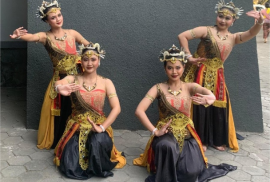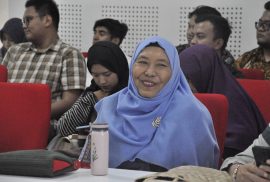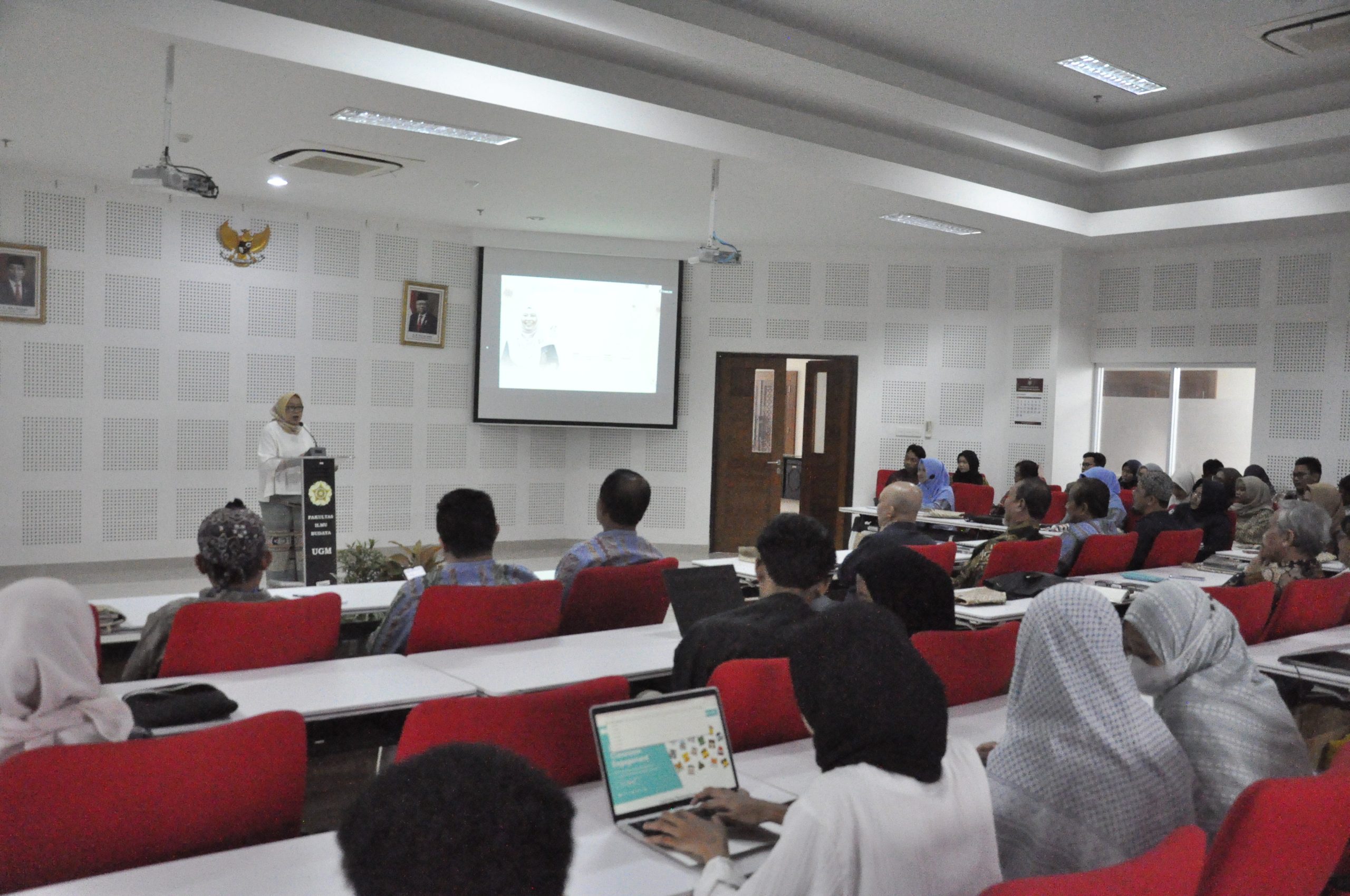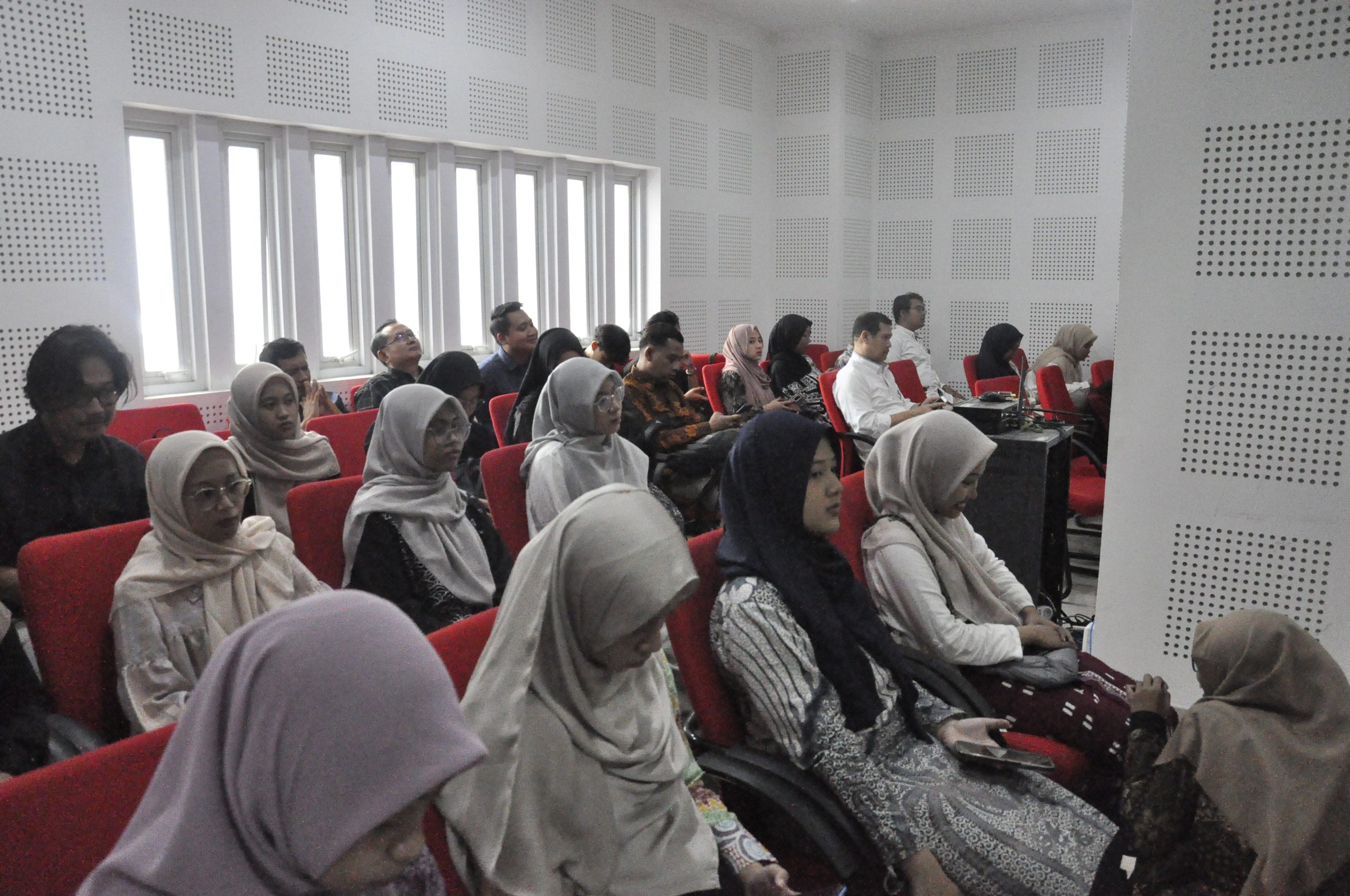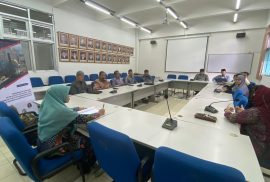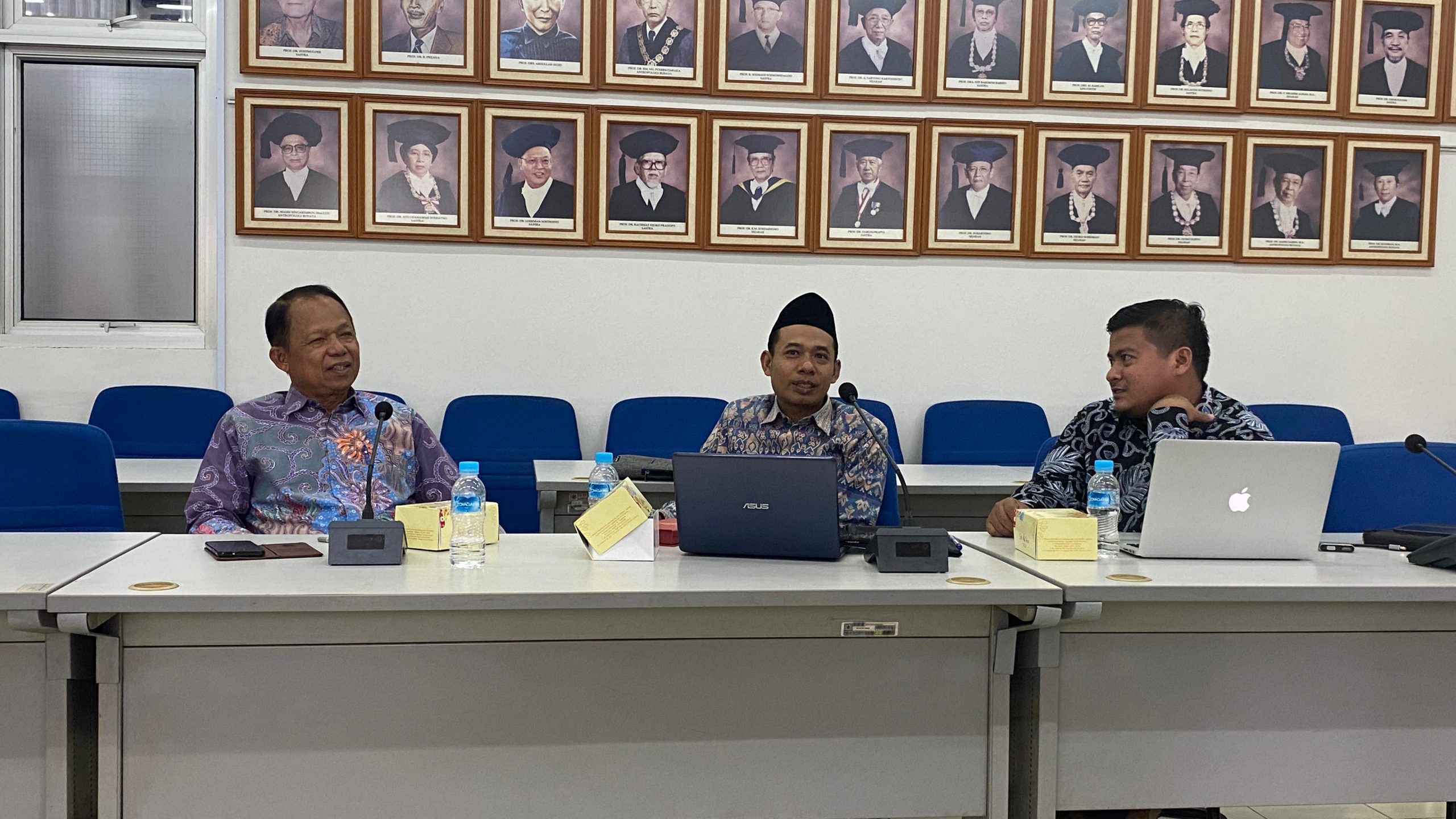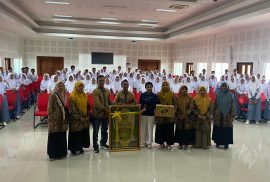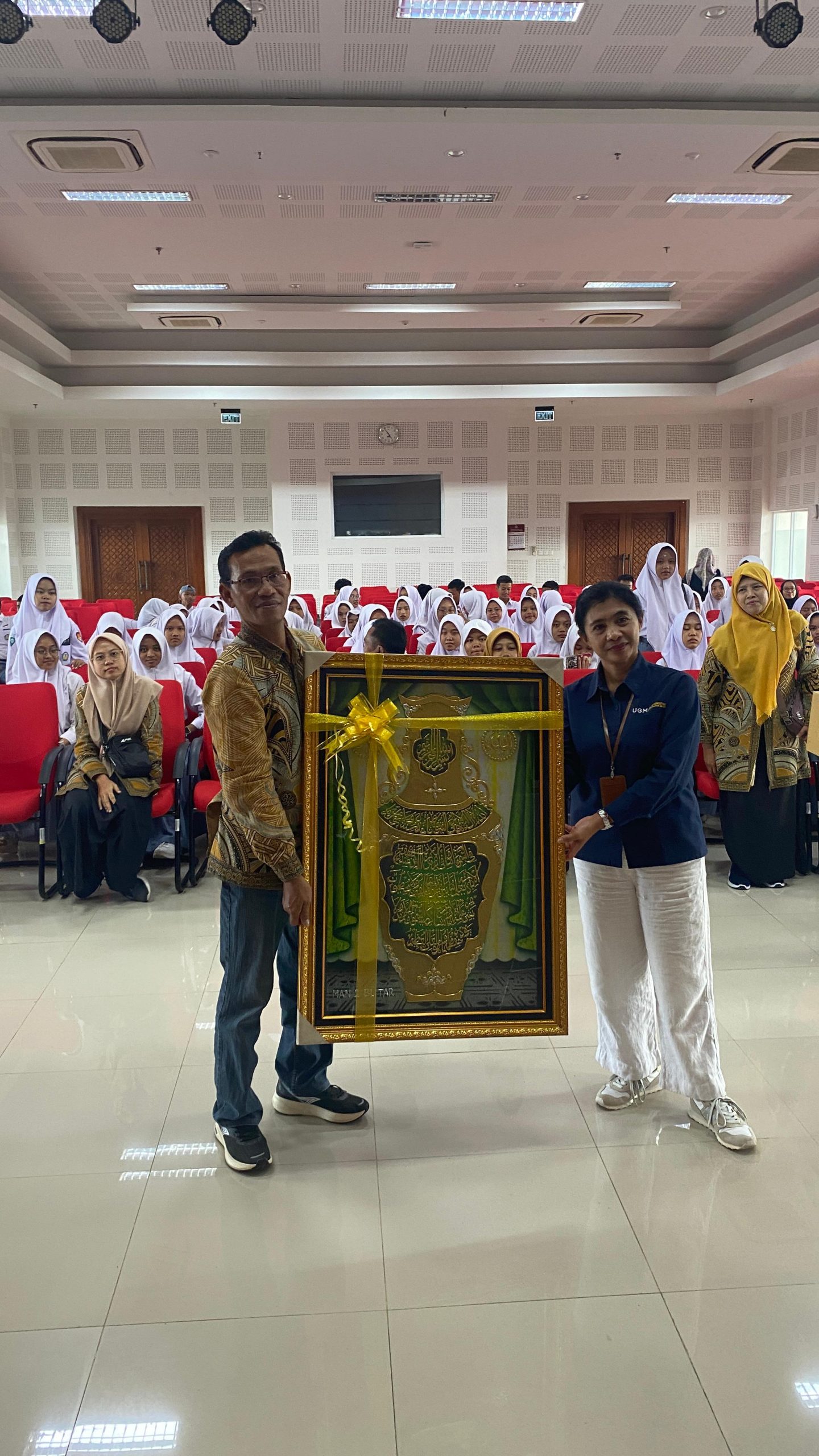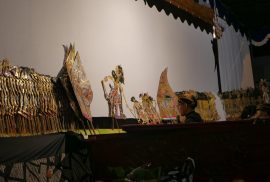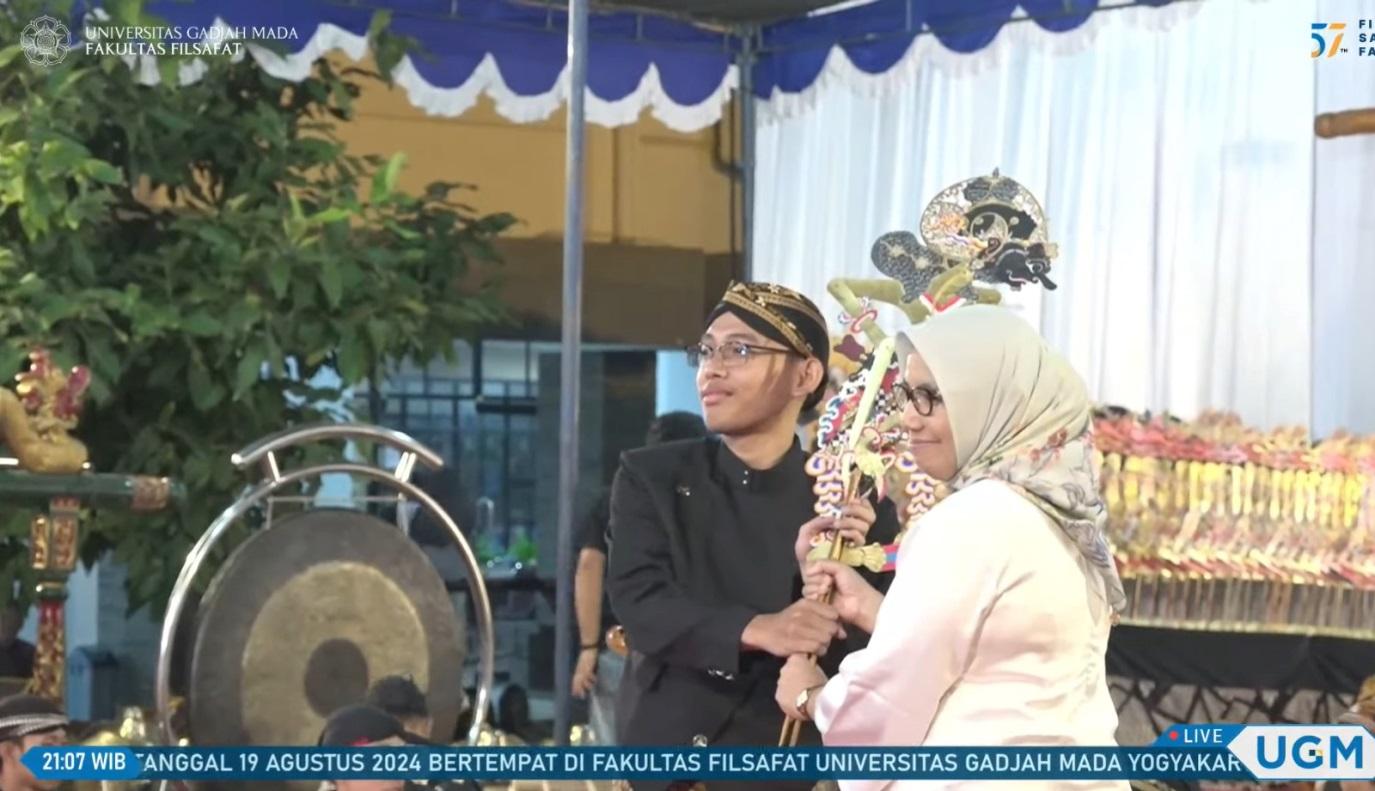Thursday, August 29, 2024, became a special moment for the Faculty of Cultural Sciences (FIB) Universitas Gadjah Mada with the holding of the Mangayubagya Graduation of Undergraduates period IV of the 2023/2024 academic year. A total of 244 graduates celebrated their graduation, holding a bachelor’s degree after completing their studies at FIB. The solemn graduation ceremony was made even more lively with a dance performance from Ratnaraya, a student dance unit of the Javanese Language, Literature and Culture Study Program.
Four students, Audrey Gisela, Ganes Larasati, Novalia Hidayatus S., and Wening Hidayati, presented Geol Denok Dance as part of the graduation ceremony. Geol Denok dance is a typical Semarang dance that depicts the joy of Semarang girls who dance with lively, energetic movements and accompanied by dynamic music. Etymologically, the word “geol” refers to the dance movements of the knees and hips, while “denok” is a term for girls in Semarang.
In an interview with Wening Hidayati, one of the performers, she said that Geol Denok Dance was a new dance for Ratnaraya members. “We try to give our best in this performance, and are very happy to be able to welcome the graduates of FIB UGM with Geol Denok Dance,” said Wening (09/05/2024).
Ratnaraya’s performance is not only for entertainment, but also reflects the Faculty’s commitment to preserving Nusantara culture, especially Javanese culture. This cultural preservation requires support and collaboration from various parties, and FIB UGM plays an active role by providing the widest possible space for art and cultural exploration, so that the nation’s identity remains relevant and provides benefits to people’s lives.
Author : Haryo Untoro

